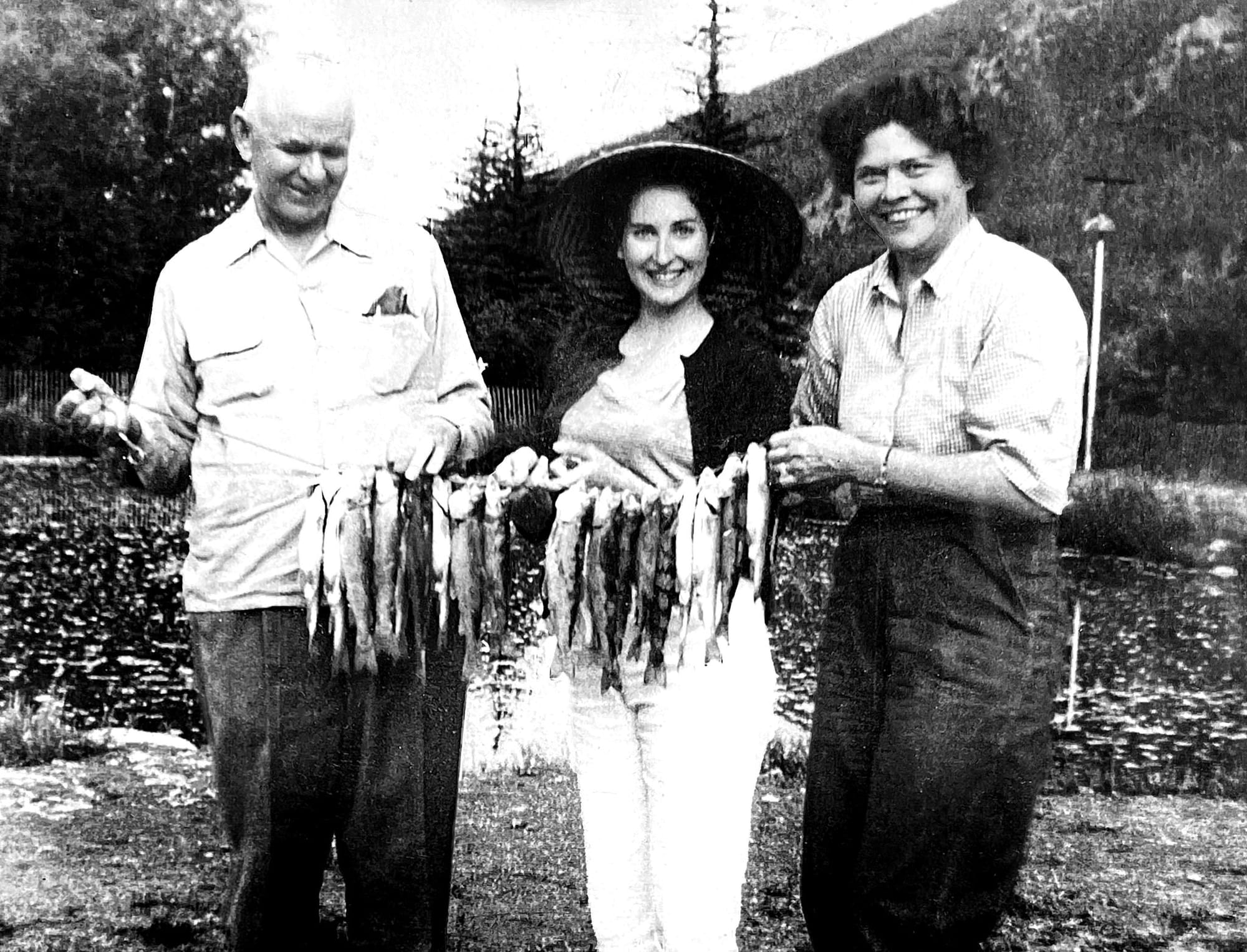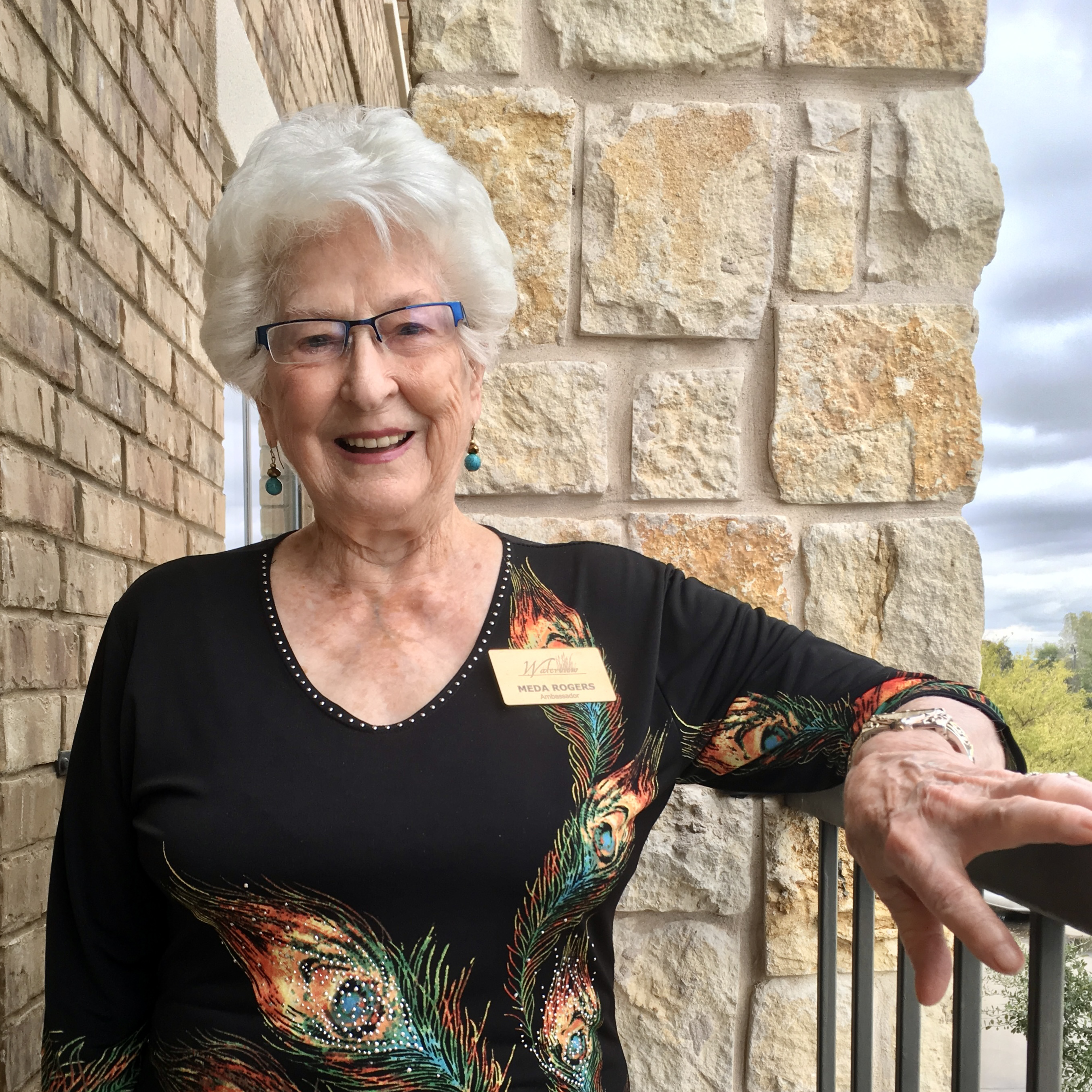Remembering Meda
A legacy of love and perseverance

She arrived in Dallas on a hot afternoon in 1946, sixteen and freshly graduated from Jacksonville High School in East Texas. Meda Ernestine Swinney — “Ernie” to family — stepped off a streetcar at Marquita and Matilda, Aunt Willie’s Tudor bungalow waiting beneath pecan trees. Lace curtains filtered the light, Uncle Tot’s wry humor echoed through every room, and Ernie learned that settling in meant more than unpacking. She folded laundry into perfect rectangles, swept before anyone asked, and memorized the radio schedule so she could switch to Benny Goodman on the hour.
Afternoons meant WFAA news, then swing music, while streetcars rattled downtown and buses rumbled along nearby Greenville Avenue. On foot or by bus she mapped the city: the bakery perfuming the sidewalk, the drugstore soda fountain, the grocer that locked its doors on Sundays. Through these walks, she discovered Dallas’s pulse: neighbors greeting one another on shaded porches, children’s laughter drifting from schoolyards, and the hum of life she was determined not to miss.
I recall the day she walked me to elementary school, pressing a lunch sack
into my hand with a reminder to “be good.” That quick benediction
sums up everything you need to know about Meda. . .
By 1949 she was nineteen and off to Colorado with Aunt Willie and Tot. In the lone photo from that trip she wears a straw coolie hat, freckles bright, and they hold a stringer of trout as the late-day sun catches her unguarded smile.
That autumn she braved an “Opposites Party,” where girls invited boys while swapping clothes. Ernie borrowed Tot’s blazer and spotted Olin Smith across the room, wearing a skirt and saddle oxfords, laughing with total abandon at the absurdity of it all. They danced, traded names, and something stuck.
By late 1950 they were married. On November 16, 1951 she delivered me at NAS Whidbey Island; Navy housing meant a corrugated Quonset hut with a stubborn draft she fought by lining the walls with blankets. Two years later my sister Lorraine arrived in Corpus Christi, and we settled for a spell in nearby Beeville with Baron, our boxer, at our feet — military gypsies following dad’s orders.
Olin left the Navy around 1955 for an engineering post at Texas Instruments, but weekends still belonged to flying. He and Pop logged hours above red Texas clay in taildraggers from Flyer’s Field. Ernie, meanwhile, served as shared secretary for a lawyer and a real-estate broker — one paycheck, two bosses. Evenings found her at the Singer, patching jeans and hemming dresses while Red Skelton cracked jokes on TV. She helped us read and kept us in line. Her tidy routines raised two children gently yet firmly.
By the late ’50s Dad and Pop were remodeling a small airport in Benton, Arkansas. Olin pressed for another move; Ernie refused, rooted now in Farmers Branch in our home on Pyramid Drive. Then, in December 1958, Pop and his half-sister died when their plane’s carburetor iced up near Arkadelphia on a flight from California right before Christmas.
Grief tightened Olin’s bond with flying and widened the rift at home. The divorce papers were signed the following August 1959.
Afterward, Bird — a family friend with epilepsy — moved in. From 1959 to 1961 she cooked, cleaned, and steadied us. I still remember one afternoon when she froze in a petit mal seizure in the kitchen, hot casserole dish in hand, foam gathering at her lips. I held her steady and we stayed still until Bird recovered — her calm born of countless small emergencies. Bird remained part of our household until she could no longer manage on her own.
Mom’s cooking became our daily ritual: Southern-fried chicken thighs, MaMa Swinney’s buttermilk cornbread, salmon croquettes on Fridays. When cash was tight she stretched pintos into multiple meals. “Gratitude,” she said, “makes everything taste better.”
Lorraine and I pushed boundaries through high school — she two years behind me — and like most teenage siblings we pushed each other's buttons. Mom’s resolve showed cracks, yet she clung to Pyramid Drive; stability was the promise she’d made.
I graduated in 1970, Lorraine in ’72, and silence settled over the house. Mom worked weekdays and sometimes danced on weekends with her friend Peggy. Short solo trips led to a Bahamas cruise where she met Ross Rogers — tall, Canadian, disarming, Ross had a knack for storytelling and a kindness that matched hers. They were an unlikely pair. But a perfect fit. They married in 1978.
She began using “Meda” then, embracing adventure as the two of them traveled the world. Along the way they adopted Webster, a stuffed bear who collected destination pins and softened strangers’ smiles.
Together, the three of them crossed continents and oceans, from Bangkok to Cape Town to Antarctica — Ross’s declining mobility finally grounding them in 2008. Yet at heart she remained the bright girl from East Texas, charming everyone with a big smile and the way she just “ha-ha-ed” whenever something tickled her. She taught me that love lived in the ordinary: a warm pan of cornbread, a Scrabble game on a rainy afternoon, a coolie hat shading sunlit dreams.
Ashley, her financial advisor turned friend, said:
“Meda was in her eighties when we met, yet she sliced through complex finances with ease. She carried herself with quiet grace, spoke thoughtfully, and always kept me on my toes. Over time our reviews shifted from ledgers to the book she’d finished or the birds at her feeder. Her optimism was contagious; I left every meeting lighter, sure she’d mastered the art of finding joy in small, ordinary things.”
On the second anniversary of her passing — I return to those Marquita & Matilda days. I picture her rising to morning news on the radio, heading to her secretary’s desk, then sewing and cooking each evening for two children who believed she hung the moon. I recall the day she walked me to elementary school, pressing a lunch sack into my hand with a reminder to “be good.” That quick benediction sums up everything you need to know about Meda; she wanted her children to be good and to do well.
When I think of her, a breeze seems to brush my face, and every road feels shorter with her near.
Meda died on 11 August 2023, quietly and gently — the way she once stepped off that Dallas streetcar, as though she already belonged. The Singer sits silent now, but sometimes I swear I hear the radio flip to Benny Goodman and see lace curtains shifting in late-day sun.
If you ever find yourself on a quiet corner where two streets meet, look around and remember that every sturdy home you see, every stitch in a quilt, every dinner warmed in a hot skillet once carried the weight of someone’s devotion. In honoring Meda — Ernie, my mother — we honor the countless women whose quiet lives become legacies in small scraps of memory. Walk any pecan-lined street and think of her. She’s there — in a packed lunch, a steadying hand, in the warm weight of a teddy bear. . . named Webster.
How do you honor the everyday acts of love that built your own story?
— Lawrence

Thanks for reading Still Stories! Subscribe for free to receive new posts and support my work.

